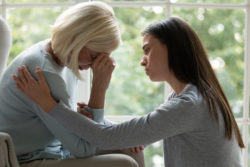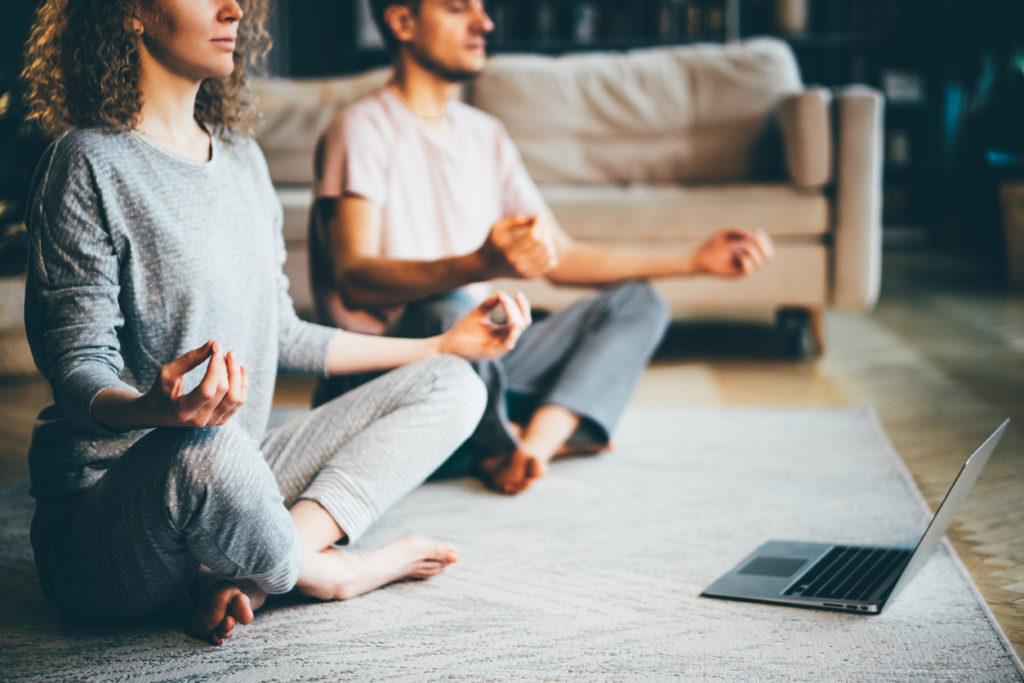Recognizing Signs of Domestic Violence and Abuse in Loved Ones

Domestic abuse affects more than 10 million men and women per year in the United States. What makes domestic abuse so insidious is that it can easily go unrecognized if friends and family don’t know what to look for, especially when the perpetrator is widely regarded as nice, charming, or a “family man” or “family woman.”
If you suspect a loved one is a victim of domestic abuse, or just want to be more vigilant in recognizing it, keep an eye out for these signs of different types of domestic abuse.
Signs of domestic violence
Domestic violence can consist of:
- Kicking, punching, biting, pulling hair, pushing, slapping, scratching, strangling and choking
- Threatening, and even attacking, the victim with a weapon
- Withholding food or shelter
- Physically restraining the victim, either to prevent them from leaving or force them to go somewhere
Signs of domestic violence can include:
- Having black eyes, bruises, cuts, scrapes, broken or sprained bones, missing hair or aches and pains
- Reporting to fall down the stairs, trip over objects, hurt themselves in the kitchen or similar to explain injuries
- Frequently missing school or work
- Wearing clothing and heavy makeup that may conceal injuries, like long sleeves in warmer weather
- Flinching when someone raises their hand or moves suddenly
Signs of domestic mental abuse
Mental abuse, also known as verbal abuse or emotional abuse, is the abuser’s way of isolating the victim – making them feel worthless, like none of their friends or family care about them, and maybe even like they deserve the abuse.
Signs of domestic verbal abuse, mental abuse and emotional abuse:
- Name-calling, humiliating, intimidating, taunting, criticizing and yelling at the victim
- Preventing communication or socialization between the victim and their friends and family
- Embarrassing the victim in front of others
- Gaslighting the victim, or accusing them of being jealous, crazy or abusive themselves
- Being jealous of the victim’s relationships with others
- Threatening to harm the victim or their loved ones, even if they never act on it
- Stalking the victim, digitally and/or physically
A victim of mental abuse may have:
- Low self-esteem or other personality changes
- Increased depression and/or anxiety
- Feelings of embarrassment about their partner and how they treat them
- Fear of going home to their abuser
Signs of domestic abuse
Domestic abuse can encompass domestic violence and domestic mental, emotional and verbal abuse, in addition to other forms of abuse like sexual abuse, digital abuse and financial abuse.
Sexual abuse
Even if the abuser and victim are in a relationship, sexual acts require consent from both parties each time.
Sexual abuse includes:
- Forcing the victim to perform sexual acts without their consent
- Touching or kissing the victim without their consent
- Restricting or destroying the victim’s access to birth control or protection against sexually transmitted diseases and infections
- Threatening or guilting the victim into performing sexual acts
- Intentionally forcing the victim to procreate
A victim of sexual assault may show signs of:
- Bruising or other physical trauma
- Depression, anxiety and/or post-traumatic stress disorder
- Avoiding physical contact
- Trouble walking or sitting
Digital abuse
Digital abuse includes:
- Harassing or bullying the victim over text, phone calls, email and/or social media
- Taking away or monitoring the victim’s phone, computer or internet
- Controlling who the victim can interact with over the phone or the internet
- Posting embarrassing content about the victim on social media
- Forcing the victim to share their login credentials for email and social media accounts
- Texting, calling or emailing the victim incessantly, and sometimes, abusing the victim further if they do not respond
- Tracking the victim through their phone, with or without the victim’s knowledge or consent
A victim of digital abuse may demonstrate:
- Anxiety surrounding their phone
- “Addiction” to their phone
- Anxiety over what other friends post about them on social media, for fear of the abuser seeing it
- A constant need to check in with their partner
Financial abuse
Financial abuse includes:
- Controlling what the victim can and cannot spend money on
- Making the victim account for each transaction they make
- Routing the victim’s paychecks to their own bank account
- Forcing the victim to quit their job, rendering the victim reliant on the abuser
- Stealing the victim’s money
- Giving the victim an allowance
- Preventing the victim from going to work by hiding their keys, restraining them or calling in sick for them
- Using the victim’s social security number to open and use credit cards and take out loans
A victim of financial abuse by their partner may:
- Be unable to use their own cash or credit cards, or claiming to not have any money on them
- Decline social invitations, citing money concerns
- Quit their job suddenly
- Ask for small loans to cover basic necessities, but request that you do not mention it to their partner
What to do if you think your loved one is being abused
At its core, domestic abuse is the byproduct of the abuser feels entitled to power and control over their victim. Due to the measures abusers take to isolate and manipulate their victims, it is not easy for the victim to “just leave.” They need a strong support system of friends and family who recognize the signs of domestic violence and can discreetly help get to a safe place.]
Pyramid Healthcare offers family services and mental health therapy for those who are coping with trauma or crisis. If you or your family needs support, reach out today at 301-997-1300.
If you or someone you love is experiencing domestic abuse, call the free and confidential National Domestic Violence Hotline at 1-800-799-7233.



